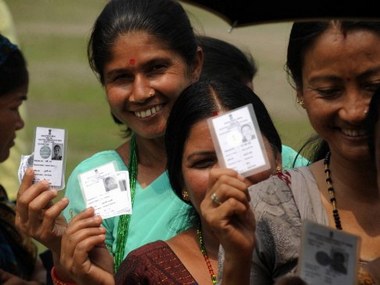(Editor’s note: This piece was originally published on 1 November, 2011 but given its relevance we’re republishing it) The quality of our polity needs a drastic overhaul. It needs no overstating. The political class has lost the plot in a changing India, the disconnect between the people and their representatives has turned unbridgeable and politicians at all levels are perceived to be working against the popular will. There are enough reasons to be proud of our democracy but there is apprehension in many circles that it is heading fast towards a dead end. Intense adversarial politics and the politics of opportunism and partisanship have taken their toll. It does not help anymore to punish the political parties by throwing them out of power. In a political spectrum bereft of ideology, one self-serving party is just the carbon copy of the other. It is futile to expect parties to self-regulate and change themselves — politics is too competitive, too cut-throat for that. [caption id=“attachment_120940” align=“alignleft” width=“380” caption=“Intense adversarial politics and the politics of opportunism and partisanship have taken their toll. AFP”]  [/caption] The situation calls for firmer popular grip over the representatives in particular and the political class in general. In this context, the right to recall and the right to reject are brilliant ideas, in theory at least. Team Anna has made these part of their political reforms agenda and the Election Commission and the government are not too averse to some kind of reform along those lines. Once implemented, in whatever form, these would ensure that candidates nominated by parties are not fait accompli for the electorate. They no more have to be forced to chose between one corrupt candidate from one party and another candidate equally corrupt from another party. Empowering, yes, but not easy to implement. The general agreement so far is the right to recall, which promises to vest powers with the voters to withdraw their representative, is difficult to implement in Indian constituencies which are typically vast and unwieldy. There is scope for misuse of the right for narrow political ends and the experience in Madhya Pradesh shows that the same candidates manage to come back to power in subsequent elections soon after being pulled out by the voters. Moreover, there needs to be a set of conditions making a case fit to be subject to the right to recall. Given the varied interests of the electorate and mental affiliation to political players, it is nearly impossible to draw up such conditions. But the finer details could be worked out in the course of time. A thought in that direction is a good beginning at this point. However, the right to reject, which leaves an option for the voter on the electronic voting machine to reject all the candidates on offer, has found positive resonance among all stake-holders concerned. The Election Commission is planning to write to the Union law ministry, seeking its clearance to implement the right in the assembly elections in five states due next year. The commission has asked for suitable amendment in election rules giving the electorate the option of “none of the above”. If this option gets maximum votes, it means that all the candidates in the fray have been rejected by the electorate. This could lead to a re-election and according to some suggestions, a fresh set of candidates, excluding those rejected, would be put up by the parties. The suggestion has been doing the rounds since 2001 but there has been no serious attempt to implement it fully. At present, under section 49 of the election rules, a voter is allowed the ’none of the above choice’ but he needs to fill up a form at the polling booth to that effect. It violates the voter’s right to secrecy besides making him subject to avoidable hassles. On paper, it is a good idea. But would it work as intended? In India, parties have always been more important than the candidates. People generally vote for any candidate their favourite party puts up. Not long ago, people in many tribal areas voted blindly for the ‘Hand’ symbol of the Congress without even knowing who the actual candidate was. It applies to most other pockets in the country too. Wouldn’t it be better if the practice of having permanent symbols for parties was done away with? This would force candidates to reach out to people directly. Without this, the right to reject would be pointless. Is it possible that people would go for the ’none of the above decision’ overwhelmingly? It is not likely. Again, it is not possible without adequate awareness among the voters about the candidates and their absolute apoliticalness. There does not seem to be a way right now to put before them the merits and demerits of all candidates and make them think. It could end up being a bigger exercise than the election itself. Moreover, people who are not interested in voting for any of the candidates don’t go to the polling booths in any case. People cannot be expected to reach distant booths just to register a ’none’ vote. This appears impractical. The proponents of the idea need to think about it deeper. The right to reject could end up being a cosmetic effort to change a system that needs a surgical operation.
It’s good idea with serious flaws. It fails to take into account the ground realities of Indian politics. It offers cosmetic change to a system that needs surgical operation.
Advertisement
End of Article


)
)
)
)
)
)
)
)
)



